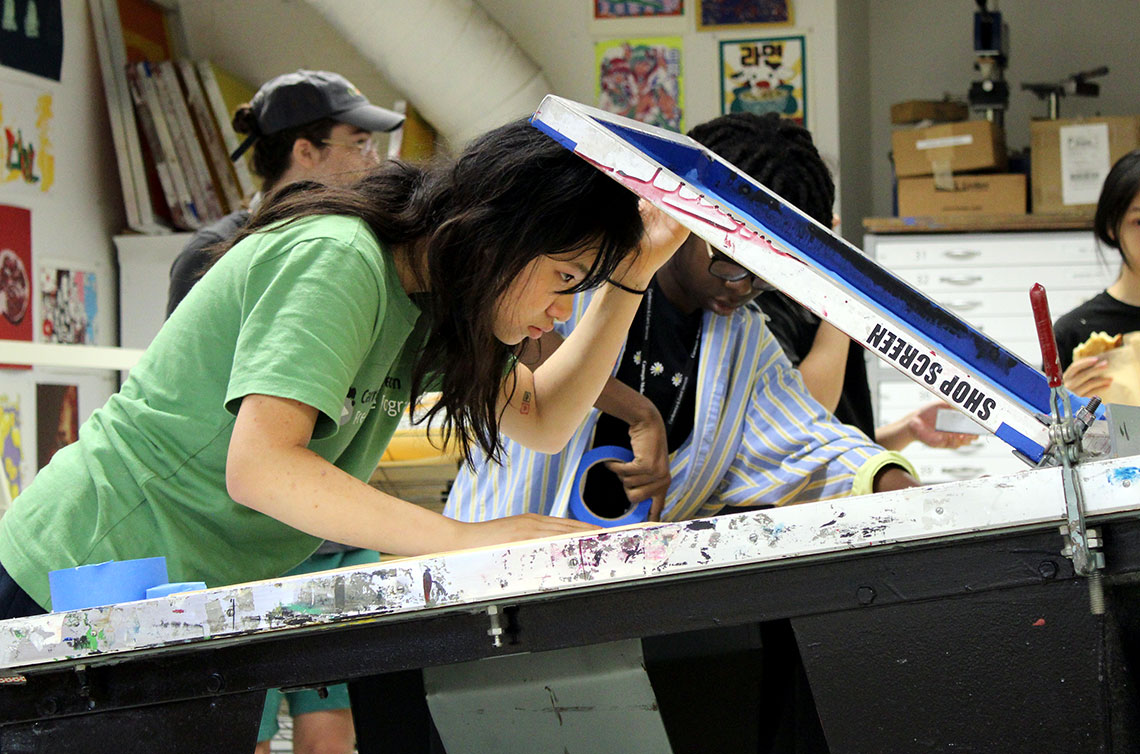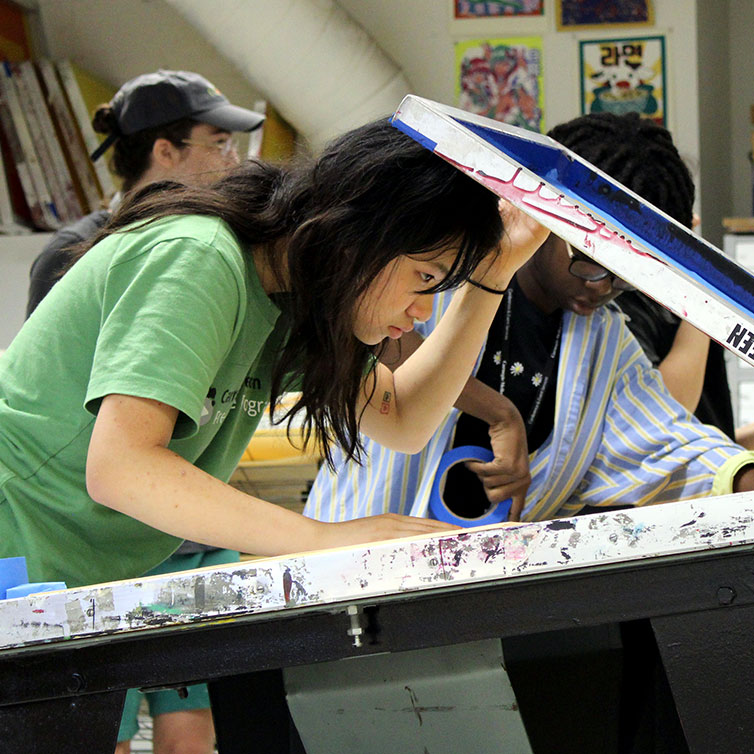1. Who can participate?
Students must be at least 16 years old by the program start date and currently enrolled in 10th or 11th grade at the time of application.
2. What is the goal of the program?
The Pre-College Art Program mirrors the structure and intensity of Carnegie Mellon’s School of Art undergraduate experience. Students gain hands-on studio training, learn critical thinking skills, and develop portfolio-ready work for college applications.
3. What’s the difference between the 3-week and 6-week options?
The 3-week program (Session One) culminates in a student exhibition, while the 6-week program includes both sessions for a more comprehensive experience with additional coursework and mentorship.
View Session Dates
4. What do students study?
Classes include Drawing, Sculpture, Animation, Painting, Photography, Printmaking, and Concept Studio—a course that encourages experimentation and creative problem-solving.
Explore Courses
5. What is the daily schedule like?
Students attend classes Monday–Thursday, 9 AM–12 PM and 1 PM–4 PM, with optional Friday workshops. They should expect 8–10 hours of independent work each week, fostering strong time-management and studio habits.
6. Is the program residential?
Yes, students may live on campus in CMU residence halls with full supervision from trained residential staff. Commuter options are also available for students who live within approximately 30 miles of CMU’s campus.
Learn About Housing & Dining
7. How is student safety supported?
CMU’s Pre-College staff provides 24-hour supervision, including resident advisors, program coordinators, and campus security. Students also have access to on-campus health and wellness services.
8. How much does it cost, and is financial aid available?
Tuition and scholarship information is available online. Need-based financial aid and merit scholarships are available, and applications are due by February 1 for scholarships and international applicants.
View Tuition & Aid Info
9. Do students earn college credit?
The program is non-credit, but it provides an authentic college-level studio experience and a valuable preview of life as a CMU student.
10. How can this program help with college admission?
Students leave with a strong, faculty-reviewed portfolio, direct feedback from CMU professors, and a better understanding of art school expectations—all of which strengthen future college applications.




